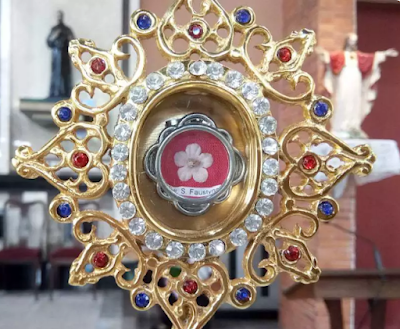Did you know that saints’ relics are not mere keepsakes or religious souvenirs? In the Catholic Church, they carry a real and profound spiritual power, being considered true sources of grace for the faithful. This phenomenon, often unknown or misunderstood, reveals a fascinating dimension of faith and Church history.
In this article, we will uncover what relics are, why they are so highly valued, and how they act as channels of the presence and intercession of the saints in the world. Get ready to discover a rich and mysterious aspect of Catholic tradition that touches the hearts of millions.
What Are Relics?
Relics are material remains or objects that belonged to a saint — such as fragments of bones, pieces of clothing, items used during their life, or even things touched by them. The Church divides them into three main categories:
-
First-Class Relics: Parts of the saint’s body (bones, hair, blood).
-
Second-Class Relics: Personal objects used by the saint.
-
Third-Class Relics: Items that have touched first- or second-class relics.
Why Are Relics Important?
In Catholic tradition, holiness does not disappear with the death of the body. On the contrary, the saint’s body is seen as a temple of the Holy Spirit, and thus, their remains are honored with great respect.
Relics are channels of grace, for through the saints’ intercession, God can act miraculously in the lives of the faithful. They strengthen faith, inspire devotion, and form a link between heaven and earth.
Relics and Miracles: Testimonies of Divine Presence
Throughout the centuries, countless miracles have been attributed to the intercession of saints through their relics — unexplainable healings, protection from dangers, and even supernatural manifestations.
These events not only confirm the holiness of the intercessors but also affirm the reality of the communion of saints, where those already in glory continue to care for the Church here on earth.
Curiosities You May Not Know
Many cathedrals and churches keep relics in their altars because the presence of relics is a requirement for altar consecration.
The veneration of relics dates back to the early centuries of Christianity when Christians honored the bodies of martyrs.
Exact relics of saints as ancient as St. Peter and St. Paul are still preserved today, scattered across different basilicas around the world.
How to Live Devotion to Relics Today
If you want to deepen your faith, devotion to relics can be a rich way to feel the closeness of the saints and God’s love. Visiting churches that hold relics, praying before them, and asking for the saints’ intercession can strengthen your spiritual life in a concrete and powerful way.
Relics, Bridges Between Heaven and Earth
Relics are not just old objects — they are living bridges connecting us to the saints, the history of the Church, and, above all, to God. Valuing this mystery means recognizing that the Catholic faith is full of tangible signs of divine grace, even here among us.
Want to discover more curiosities that nurture your faith?
Subscribe to our newsletter and receive deep, inspiring content directly in your inbox!
By: Wander Venerio – Theologian – Writer.





Comments
Post a Comment
Obrigado por nos visitar! Volte sempre! Pax et bonum!